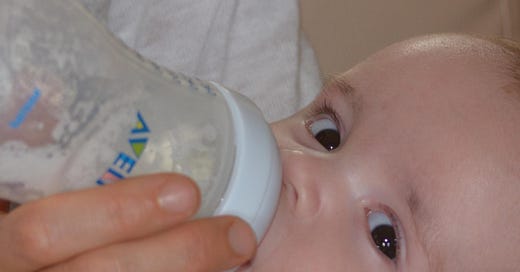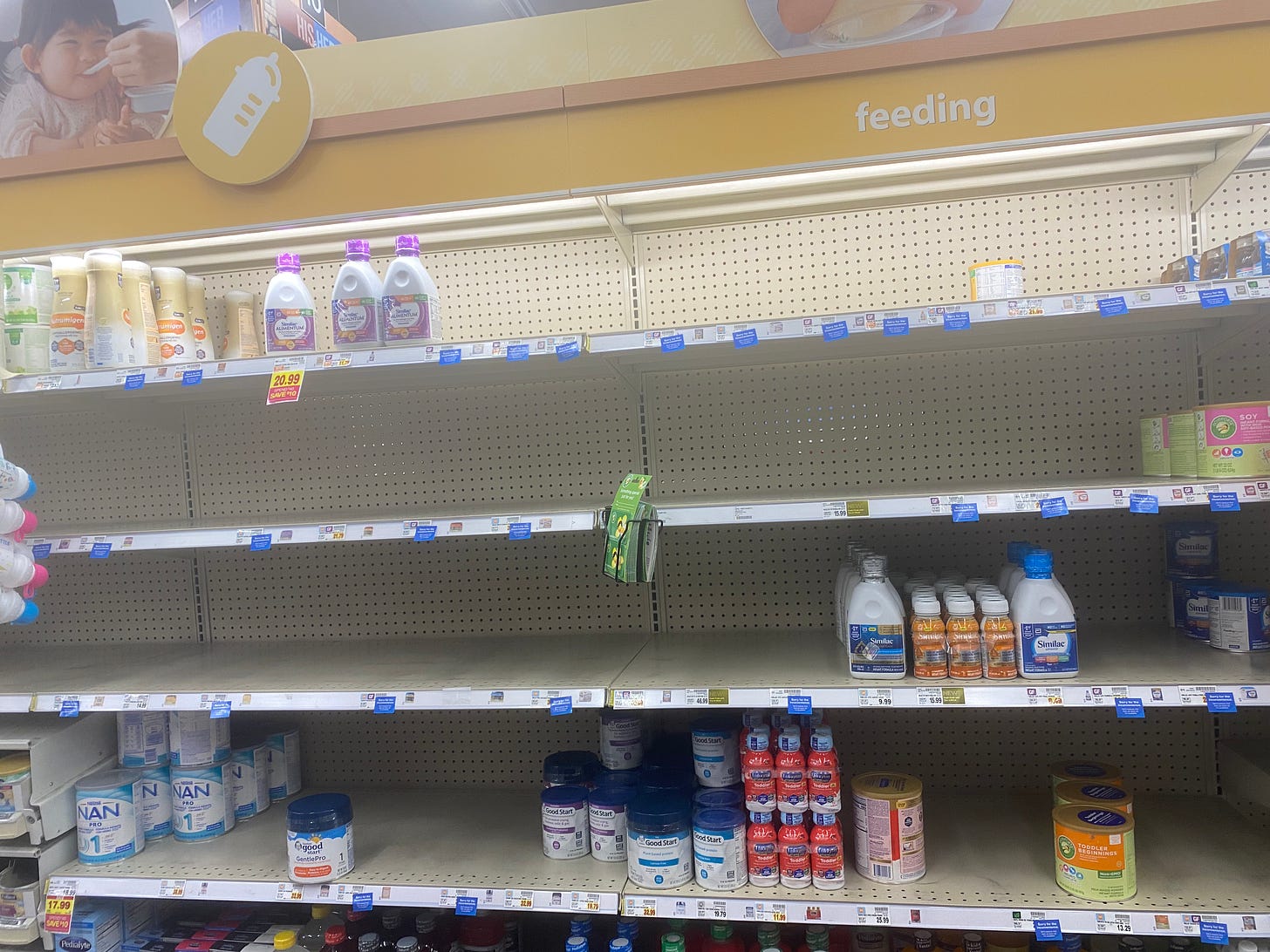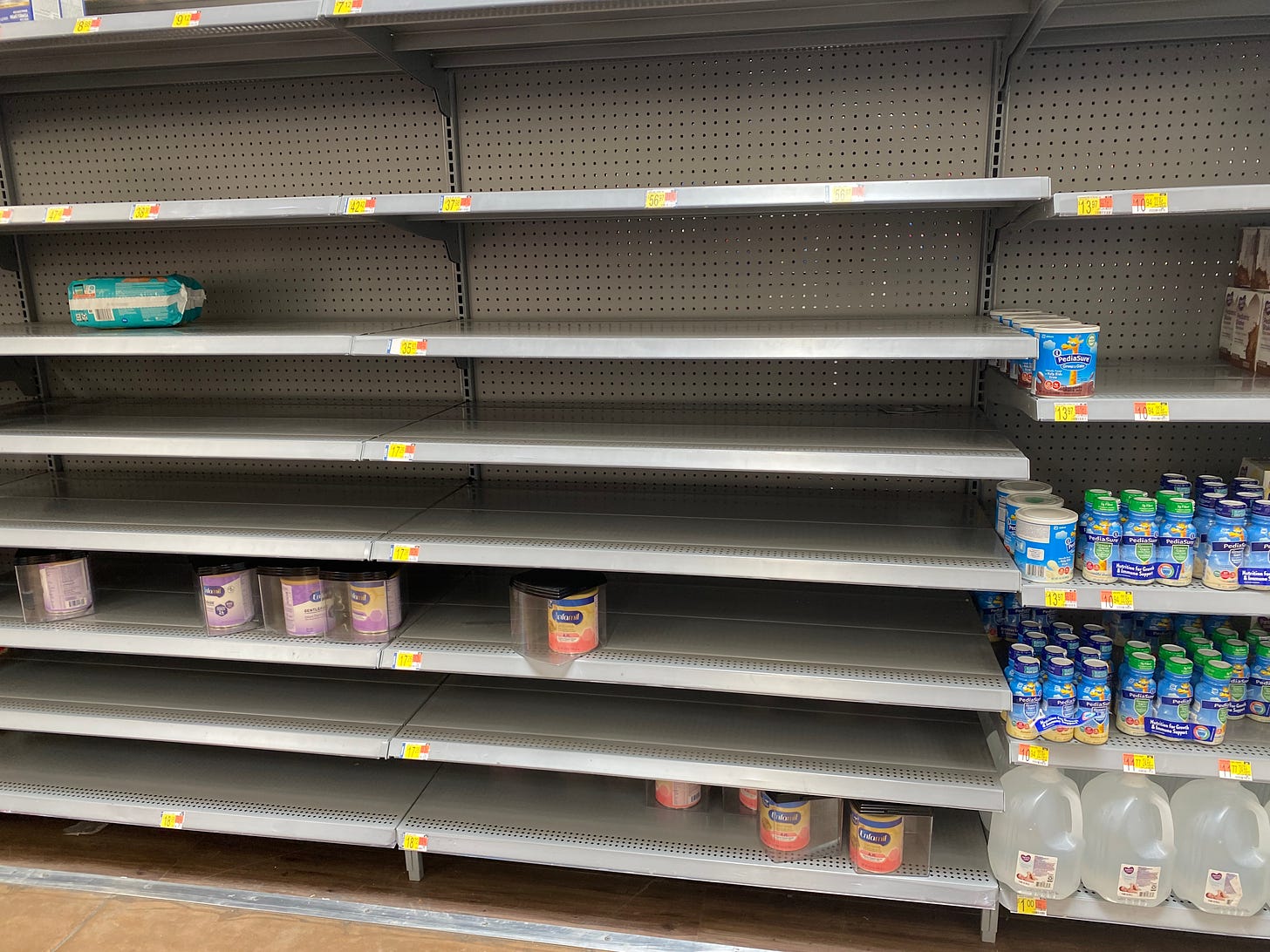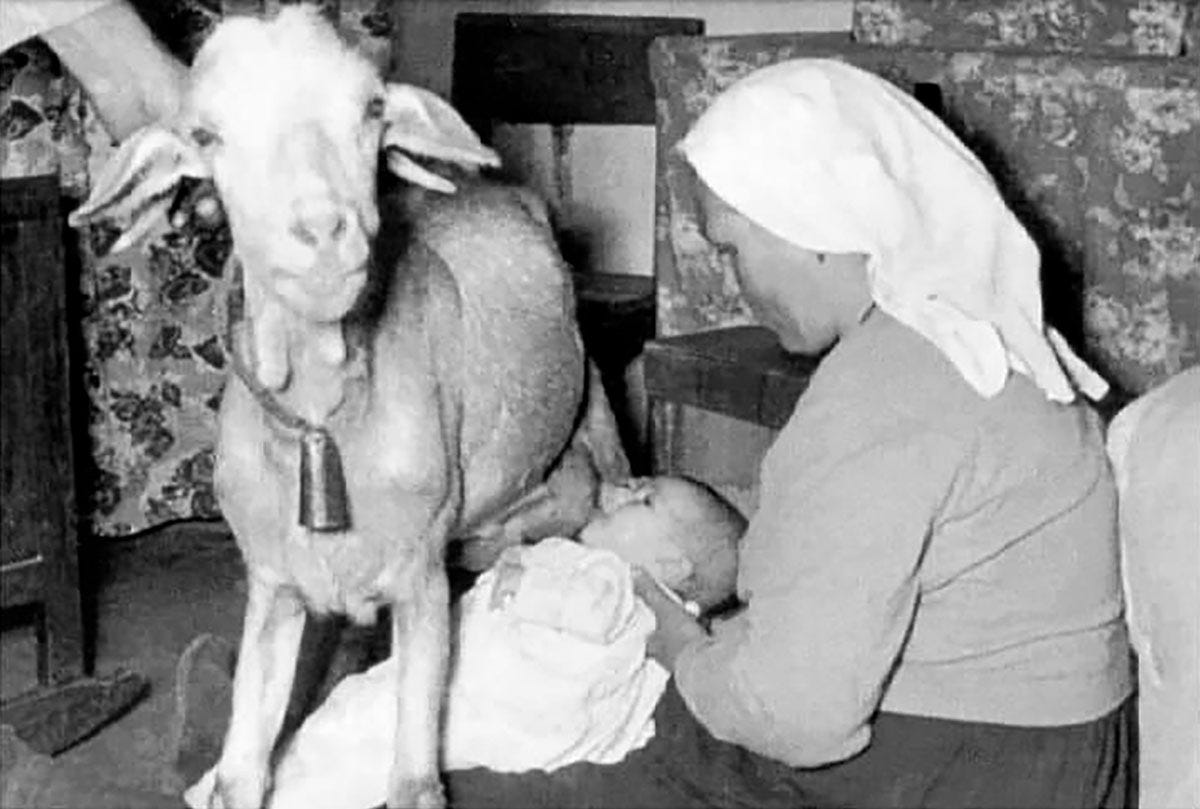I've received at least a dozen calls over the last few weeks that go something like this: "Hi, is this Gilded Gate Farm? Do you sell goat milk? I need some for my baby." Every time my heart sinks. I wish I could help, but can't.
Since the baby formula shortage hit, desperate parents have been trying to figure out what to do. Particularly for those whose children have allergies to cow milk proteins, the situation feels dire. Those parents often already have to use specialty formulas, and finding them when the shelves are bare of any formula at all makes for a critical situation.
Social media is rife with a combo of formula-shaming those who need it and "back-in-my-daysing" in a bizarre attempt to minimize the seriousness of this situation. The last thing a mother trying to figure out how to feed her baby needs is a keyboard warrior telling her to "just try harder" to breastfeed.
Despite widespread calls from the medical establishment to not make formula at home, many people have posted formula recipes from the 1950s and 1960s on social platforms. Articles and "fact checks" explain that making formula is a bad idea but give no helpful suggestions for parents who are desperate to feed their kids other than: call your pediatrician, look at more stores, and see if you can buy it online. As if parents haven't already exhausted all those options.
“Can’t find formula? Try looking harder!” Thanks.
Over the last two days, I went to Walmart, King Soopers (a Kroger grocery store), and our local Costco. There were fewer than ten cans of infant formula at Walmart, one left at King Soopers, and none at Costco. All had toddler formula, but you're not supposed to feed that to babies. A search this morning showed that Amazon was sold out as well.
Parents are now using search engines to attempt to find goat milk, which inevitably leads them to my small urban farm website. I sell both fresh and freeze-dried goat milk, but ONLY FOR ANIMAL CONSUMPTION. People will sometimes use goat milk for small puppies or kittens who need a boost or give it to their show animals. Once I had a lady with an orphaned horse colt who used our goat milk to save him.
The sale of milk for animal consumption is legal and unregulated, but once humans are involved, it becomes a sticky situation. Selling raw milk in Colorado is illegal, but even pasteurized milk (and I pasteurize all my milk myself) is subject to strict regulation.
Even so, some people will sell a raw milk "herd share" and allow others to buy a portion of a goat to collect their "own" milk from "their animal" as a workaround. We looked into this process based on the massive demand in our area for fresh goat milk and realized its liability makes it untenable for us. In addition, we choose to pasteurize all our own milk for our own use.
Even though I test our goat milk monthly and feel confident in our milking process, sterilization procedures, pasteurization, and the health of our animals, I also don't want to be the person who accidentally somehow makes a baby sick. I would never be able to forgive myself.
That said, if it was my child and I had no other way to feed him, I would absolutely give him my own goat milk.
Goat milk comes out of the animal homogenized. The proteins are easier to digest than almost any other dairy, so goat milk-based formulas are often recommended for infants with either allergies or digestive issues.
It seems as if some parents are deciding to take the "do-it-yourself" formula route, as powdered goat milk was sold out at both Walmart and King Soopers. Another common ingredient of homemade formula, Karo Syrup, was also gone.
I know that I am not the only one with a goat herd getting calls. The Colorado goat social media groups now have posts from small farmers without the infrastructure of the Grade A dairies trying to figure out what to do and how to help.
For now, the answer seems to be: nothing. All I can do is take the calls from moms who feel panicky and tell them I can't sell them milk for human consumption, but then listen to their fears.
I want to help these people who truly need it. Knowing I'm in a better position to do so than almost anyone and am still unable makes me feel especially impotent.
There are no easy answers here. The "tips" conveyed to parents looking for solutions are unhelpful to the point of being almost insulting. The recipes posted online from 70 or 80 years ago could fall short or even be dangerous. Smaller localized partial solutions (like my dairy herd) have our hands tied with liability, legal ramifications, and fear.
Ultimately, all I can do is listen to nervous parents and tell them I understand. In our household, we're fortunate to have moved from the "formula" stage to the "what are you eating off the car floor?!?!?" stage. But, I can imagine how scary it must be not to be able to buy what your baby needs to eat.
The only thing I know in this landscape is this: some parents are rightfully nervous and minimizing them with: "try harder to breastfeed," and “look harder for a product that isn’t there” are garbage takes.









Kelly, I too have seen the posts/comments stating that the recipes from the 50's and 60's aren't safe or a good idea. But I haven't seen what it is about those recipes that is harmful or not good. Do you have any insight? This does appear to be a real crisis that we have little to no insight on how long this might last (it's not like it's one ship of luxury cars catching fire and sinking here). So is there any portion of 'old school' recipes or ideas that might work in a crisis?
I wish ebay would shut down the people trying to make a buck of this.